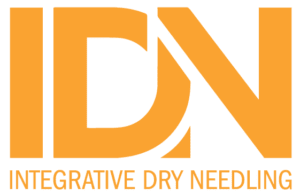Chiropr Man Therap. 2024 Dec 5;32(1):39. doi: 10.1186/s12998-024-00555-y.
ABSTRACT
BACKGROUND: Rotator cuff repair (RCR) is one of the most prevalent procedures to manage rotator cuff tears (RCT). Postoperative shoulder pain is a common complication following RCR and may be aggravated by activation of myofascial trigger points (MTrP) associated with the injury to the soft tissues surrounding the surgical incision. This study aimed to describe a preliminary, randomized, sham-controlled trial to evaluate the effectiveness of implementing 4 sessions of myofascial trigger point dry needling (MTrP-DN) as a muscle treatment approach along with 10 sessions of multimodal rehabilitation protocol (MRh) consisting of therapeutic exercise, manual therapy, and electrotherapy on postoperative shoulder pain, range of motion (ROM), strength, and functional outcome scores for patients following RCR surgery.
METHODS: Forty-six patients aged 40-75 following RCR surgery were recruited and randomly allocated into 2 groups: (1) MTrP-DN plus MRh (experimental group), and (2) sham dry needling (S-DN) plus MRh (control group). This trial had a 4-week intervention period. The primary outcome was the Numeric Pain Rating Scale (NPRS) for postoperative shoulder pain. Secondary outcomes were the Shoulder Pain and Disability Index (SPADI), ROM, and strength. The mentioned outcomes were measured at baseline and week 4. In the current study, adverse events were recorded as well.
RESULTS: No statistically significant differences were observed between groups when adding MTrP-DN to MRh for postoperative shoulder pain after 4 weeks of intervention (mean difference 0.32, [95% CI -0.41,1.05], p = 0.37). However, this trial found a small effect size for postoperative shoulder pain. No significant between-group differences were detected in any of the secondary outcomes (p > 0.05) either. We found significant within-group changes in all studied outcome measures. (p < 0.001). This study also reported minor adverse events. following the needling approach.
CONCLUSION: The lack of statistically significant differences in the outcomes and small clinical significance in shoulder pain highlights the complexity of pain management, suggesting that alternative methodologies may be needed for meaningful clinical benefits. Future studies should consider different control groups, long-term follow ups, larger sample sizes, and more MTrP-DN sessions to better understand their potential impact.
TRIAL REGISTRATION: This trial was registered at ( https://www.irct.ir ), (IRCT20211005052677N1) on 19/02/2022.
PMID:39639410 | DOI:10.1186/s12998-024-00555-y


